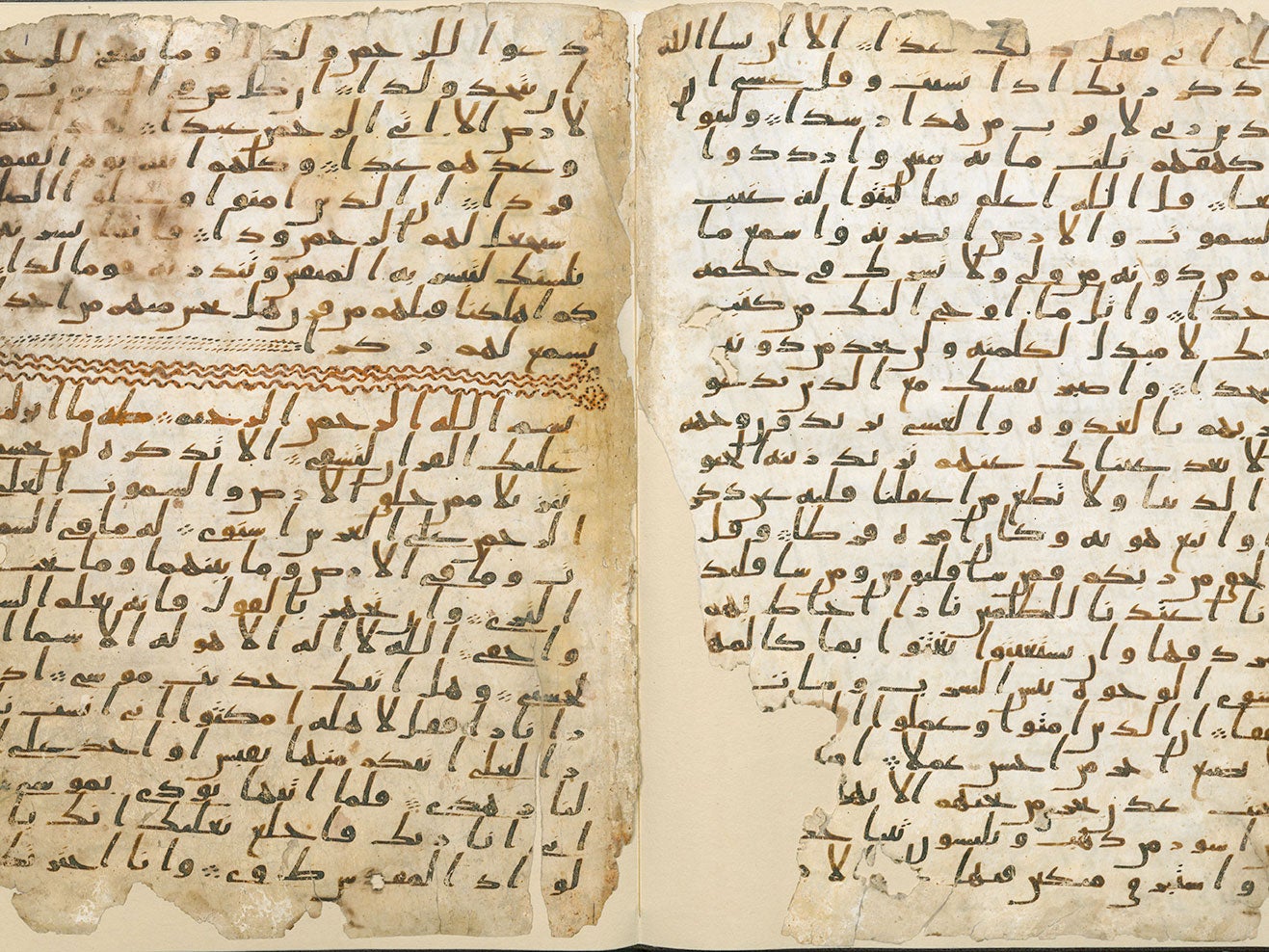World's oldest Koran discovered... in Birmingham
The manuscript had been sitting in the University of Birmingham's library for almost a century

Your support helps us to tell the story
From reproductive rights to climate change to Big Tech, The Independent is on the ground when the story is developing. Whether it's investigating the financials of Elon Musk's pro-Trump PAC or producing our latest documentary, 'The A Word', which shines a light on the American women fighting for reproductive rights, we know how important it is to parse out the facts from the messaging.
At such a critical moment in US history, we need reporters on the ground. Your donation allows us to keep sending journalists to speak to both sides of the story.
The Independent is trusted by Americans across the entire political spectrum. And unlike many other quality news outlets, we choose not to lock Americans out of our reporting and analysis with paywalls. We believe quality journalism should be available to everyone, paid for by those who can afford it.
Your support makes all the difference.Fragments of what is thought to be the oldest version of the Koran in the world have been found after it lay unrecognised in a library for 100 years.
Researchers from the University of Birmingham say the fragments are at least 1,370 years old.
Written on sheep or goat skin, the pages back to between AD 568 and 645 with 95.4 per cent accuracy, radiocarbon dating tests have indicated.
Muhammad Afzal, chairman of Birmingham Central Mosque, said there were “tears of joy and emotion” in his eyes when he saw the pieces
Radiocarbon dating was used to establish the age of the manuscript, according to the University of Birmingham website.
David Thomas, a professor of Christianity and Islam at the University of Birmingham, told the BBC this meant the fragments could have been written “within a few years of the actual founding of Islam”.
“According to Muslim tradition, the Prophet Muhammad received the revelations that form the Koran, the scripture of Islam, between the years 610 and 632, the year of his death.”
Professor Thomas said: “The person who actually wrote it could well have known the Prophet Muhammad. He would have seen him probably, he would maybe have heard him preach. He may have known him personally – and that really is quite a thought to conjure with.”
The manuscript has been in the University of Birmingham’s Cadbury Research Library for nearly 100 years. It is part of the Mingana Collection of Middle Eastern documents gathered in the 1920s.
Written in an early form of Arabic called Hijazi on two parchment leaves, the manuscript contains parts of the Suras (chapters) 18 to 20.
The university's website reported that Susan Worrall, the director of special collections, said: “The radiocarbon dating has delivered an exciting result, which contributes significantly to our understanding of the earliest written copies of the [Koran]."
"We are thrilled that such an important historical document is here in Birmingham, the most culturally diverse city in the UK," she said.
Join our commenting forum
Join thought-provoking conversations, follow other Independent readers and see their replies
Comments